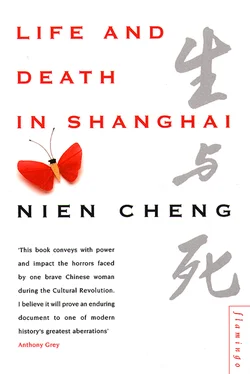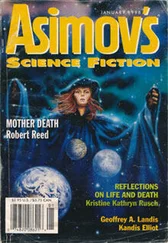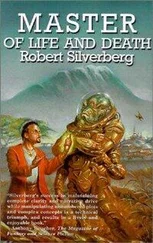1 ...7 8 9 11 12 13 ...34 ‘Perhaps they know too much about her past life. They say that before she went to Yenan and married Chairman Mao, she had a lot of lovers and even several husbands.’
‘Chairman Mao had several wives too. Why shouldn’t she have had several husbands? She sounds like a proper Hollywood film star,’ I laughed. ‘You have been brought up in China, so you have a puritanical outlook on such matters. Tell me, how about yourself? Are you likely to get criticized?’
‘Mummy, don’t be silly. I’m not important enough. I’m just one of the masses. Of course, my family background and my birth abroad might get criticized. Wasn’t it lucky I was born in Australia rather than in the United States or Britain?’
‘Certainly no one can say Australia is an imperialist country.’
‘No, most people at the Film Studio think it’s still a British colony where the people are oppressed. They don’t know the Australians are really British and only the kangaroos are the natives.’ My daughter laughed heartily.
She finished her sandwiches and got up to go to her own room. Casually she asked, ‘What did you do all day, Mummy?’
‘I was called to attend a struggle meeting against the former chief accountant of our office. It seems I also must take part in the Cultural Revolution. I might even become a target of attack,’ I told her.
‘Oh, my goodness! This is extremely serious. Why didn’t you tell me before?’ Meiping was shocked by my news. She sat down again and urged me to tell her everything. After I had described my experience of the day, she became very worried. She asked, ‘Was your office all right ? Has it ever done anything wrong?’
‘No, of course not,’ I told her.
‘Why did they single out the chief accountant? Perhaps he infringed the foreign-exchange regulations on behalf of the firm? Or perhaps you didn’t pay your taxes?’
‘We paid our taxes all right. Certainly we were most meticulous in observing the foreign-exchange regulations.’
We were both puzzled but agreed it was useless to speculate. I urged her to go to bed. After remaining in silence for a while longer, she said good night and left the room. She seemed a changed girl, much older than when she came in.
I switched off the light but remained wide awake. I was thinking that the Proletarian Cultural Revolution was also my daughter’s first experience of a political movement. I wondered how it was going to affect her future. After some time, my bedroom door was gently pushed open. I switched on the light.
‘Mummy, I can’t go to sleep. Do you mind if I go down and play the piano for a while?’ Meiping asked, standing in her pyjamas in the open doorway.
‘I’ll come with you,’ I said, getting out of bed and following her downstairs.
Fluffy, Meiping’s large Persian cat, was on the terrace outside. When he saw us, he mewed to get in. I opened the screen door. Meiping stepped out and picked him up to carry him into her study. She put Fluffy down, opened the lid of the piano and proceeded to strike a few chords. Turning to me, she asked, ‘What shall I play?’
‘Anything at all, but not revolutionary songs.’
She started to play one of Chopin’s nocturnes and murmured to me, ‘All right?’
I made an affirmative noise. Fluffy was stretched out at Meiping’s feet under the piano. It was a scene of domestic peace and tranquillity but for an invisible threat hanging in the air.
CHAPTER 2 Interval before the Storm
IN THE WEEKS FOLLOWING that first meeting, I was called by the same men for several interviews. Our conversations varied very little from the first occasion. Once they asked me to provide them with a list of all the Americans and Europeans I had known together with their occupations and the place and circumstance in which I had met each one. Another time they asked me to write about the activities of our office. But when I handed to them the pages I had written, they barely glanced at them. While exhorting me to denounce my former employer, they did not ask me any concrete questions about the company. They never went beyond insinuating that Shell had done something wrong and that I was a part of whatever the crime was.
Indeed I had the impression that the men were marking time, waiting for instructions from above before going any further. Actually, unbeknownst to me and to other Chinese people, the delay in activating the movement was due to a fierce struggle going on amongst the leaders of the Chinese Communist Party. The point of contention was who should conduct the Cultural Revolution: the established Party apparatus or a special committee of Maoists appointed by Mao Tze-tung as Chairman of the Central Committee.
It was later revealed that early in August, at a Central Committee meeting, Mao Tze-tung had written a Big Character Poster entitled: ‘Fire Cannon Balls at the Headquarters’. In it he made the extraordinary accusation that the government administration (headed by Liu Shao-chi as Chairman of the People’s Republic) and the Party Secretariat (headed by Deng Hsiao-ping as Chief Party Secretary) were the headquarters of China’s capitalist class, because, he said, their policies protected and served the interests of the capitalist class. This was a very serious and shocking charge against the entire Party apparatus and the administrative organization of Communist China. Mao was able to make the accusation against Liu and Deng because he controlled the armed forces through his protege Lin Piao, who was the Defence Minister. Attempting to salvage his own position under the circumstances, Liu Shao-chi made a pro forma statement of self-criticism, saying that his economic policy of allowing private plots for the peasants and free markets to meet the need of the people in the cities had encouraged the revival of capitalism in China and represented a retreat from the road of socialism. Perhaps Liu Shao-chi believed he could save Mao’s face by such an admission. The fact remained that Liu Shao-chi’s economic policy rescued China from economic collapse after the disastrous failure of Mao Tze-tung’s Great Leap Forward Campaign in 1958-60. However, Liu’s admission of guilt was to prove a tactical mistake. It placed him at a great disadvantage and opened the way for the Maoists to escalate their attack against him and his followers in the government.
Mao’s victory at the Central Committee meeting enabled a special committee of left-wing Maoists to be appointed to conduct the Cultural Revolution. As time went on and the Party and government apparatus became paralysed under the attack by the Red Guards and the Revolutionaries, this committee became the highest organ of government and its members, including Mao’s wife Chiang Ching, enjoyed extraordinary power and were all elected to the Party Politburo. Throughout the years of the Cultural Revolution, Chiang Ching made use of her position as Mao’s wife to become his spokeswoman and representative, supposedly transmitting Mao’s orders and wishes but in fact interpreting them to suit herself. A ruthlessly ambitious woman who had been kept out of Chinese political life for decades, she now was to tolerate no opposition, imaginary or otherwise. Tens of thousands of Party officials, artists, writers, scientists and common people who fell under the shadow of her suspicion were cruelly persecuted. Scores of them died at the hands of her trusted ‘Revolutionaries’.
At this August Central Committee meeting, the Defence Minister Lin Piao emerged as Mao’s most ardent supporter. His eulogy of Mao was embodied in the meeting’s final communique published in the newspapers. Lin claimed that Mao was ‘the greatest living Marxist of our age’, with one stroke placing Mao ahead of the Soviet leaders, including Stalin, as the true successor of Lenin. During the entire ten years of the Cultural Revolution, even after Lin Piao was disgraced, this claim was maintained by the Maoists.
Читать дальше












